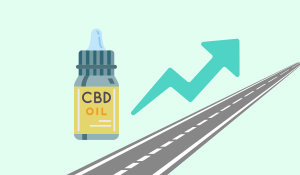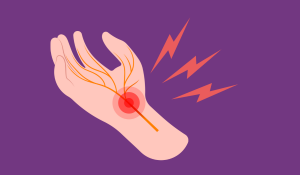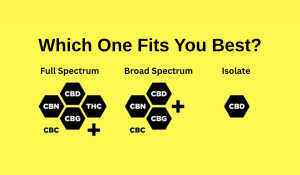In a crowded CBD market, quality control is key to finding safe, effective products. Rigorous standards build trust, and now you’re equipped with the knowledge to make informed choices. Share this information to help others enjoy CBD’s benefits safely.
Quality control is the backbone of a safe CBD product. Rigorous quality standards help ensure that products are consistent, effective, and free from harmful contaminants.
Quality control in CBD involves ensuring consistent potency, verifying the absence of contaminants, and confirming that the product matches what’s on the label.
CBD regulations vary by region. In the U.S., CBD derived from hemp with less than 0.3% THC is federally legal, but state laws differ. In Europe, products often require certifications like the EU Novel Food rules. Knowing these regulations can help you make safe, informed choices.

Safety standards are essential to avoiding low-quality products. Third-party lab testing is a critical element, as it verifies a product’s potency, purity, and safety.
Third-party lab results provide information on potency, contaminants, and beneficial compounds like terpenes. Brands like Charlotte’s Web provide detailed lab results, giving consumers transparency.
Third-party testing is like a quality guarantee from an unbiased source. Products with Certificates of Analysis (COAs) demonstrate that the company is committed to transparency.
Choosing a quality CBD product doesn’t have to be overwhelming. Here are some essential tips.
Look for brands that prioritize transparency, offer clear labeling, have positive reviews, and carry certifications like GMP or ISO.
CBD labels should include details on CBD content (in mg), the extraction method (CO2 extraction is best), and a list of ingredients to avoid unnecessary fillers.
Certifications like USDA Organic or ISO indicate a commitment to high-quality standards and transparency.
The journey from seed to product is essential in delivering high-quality CBD. Each stage of production—cultivation, harvesting, and extraction—affects the final product.
Not all extraction methods are the same. CO2 extraction is preferred as it’s clean and preserves the beneficial compounds. This method is comparable to choosing fresh juice over a concentrate.
No one wants unpleasant surprises in their CBD. Watch for contaminants like heavy metals or mold, and be wary of bold claims.
Contaminants such as mold and heavy metals are risks in low-quality CBD products. Reliable brands will use rigorous quality checks to avoid these issues.
Be cautious of brands that make exaggerated promises like “miracle cure” or “immediate effects.” These are often red flags for low-quality products.
A well-informed consumer is a safer consumer. Knowing what to look for in CBD products helps you avoid pitfalls.
Websites like Project CBD and forums on platforms like Reddit offer valuable information and community insights.
CBD myths are rampant, such as the misconception that CBD is illegal everywhere. Stick to fact-checked, reliable sources to get accurate information.
CO2 extraction is the preferred method for purity and safety.
Yes, but cross-reference with third-party lab results to ensure accuracy.
No, so seek brands that offer Certificates of Analysis (COAs).
Consult a healthcare professional and verify that the product is quality-tested.
Regulations vary by country, so check local laws before traveling.
CBD may interact with some medications. Always consult a healthcare provider first.

Explore this cbd consumption methods tutorial and follow the step-by-step process to select, use, and verify the safest ways to consume CBD for wellness.
Read More
Learn what CBD edibles are, their main types, expected effects, legal status, safety factors, and how they compare to other forms of CBD.
Read More
Therapeutic Uses of CBD Managing Chronic Pain with CBD Struggling with chronic pain? CBD might help. Studies suggest it can reduce inflammation and alleviate discomfort,...
Read More
Just as CBD may help humans due to its interaction with the body’s endocannabinoid system, the same is true of dogs. CBD has the potential...
Read More
Cannabis has been used for millennia to treat numerous health conditions. Current research offers promising results on the effects of CBD oil on breast cancer.
Read More
What Is CBD for Cats? CBD (Cannabidiol) is a natural compound from hemp. It’s non-psychoactive, meaning your cat won’t get “high.” Instead, it works with...
Read More
1. Understanding Neuropathic Pain Neuropathic pain results from nerve damage or dysfunction, causing symptoms like burning, tingling, or sharp shooting pains. Common Causes: Symptoms Include:...
Read More
CBD for Pets: A Pet Parent’s Guide to Dosage We all want the best for our pets, especially when they’re struggling with pain, anxiety, or...
Read More
What Is Lupus? Lupus is a long-term autoimmune condition that can impact multiple organs, including the skin, heart, lungs, and kidneys. The most common type...
Read More
1. Full-Spectrum CBD: The All-In-One Option What it is: Contains CBD, minor cannabinoids, terpenes, flavonoids — and less than 0.3% THC. Why choose it: Promotes...
Read More